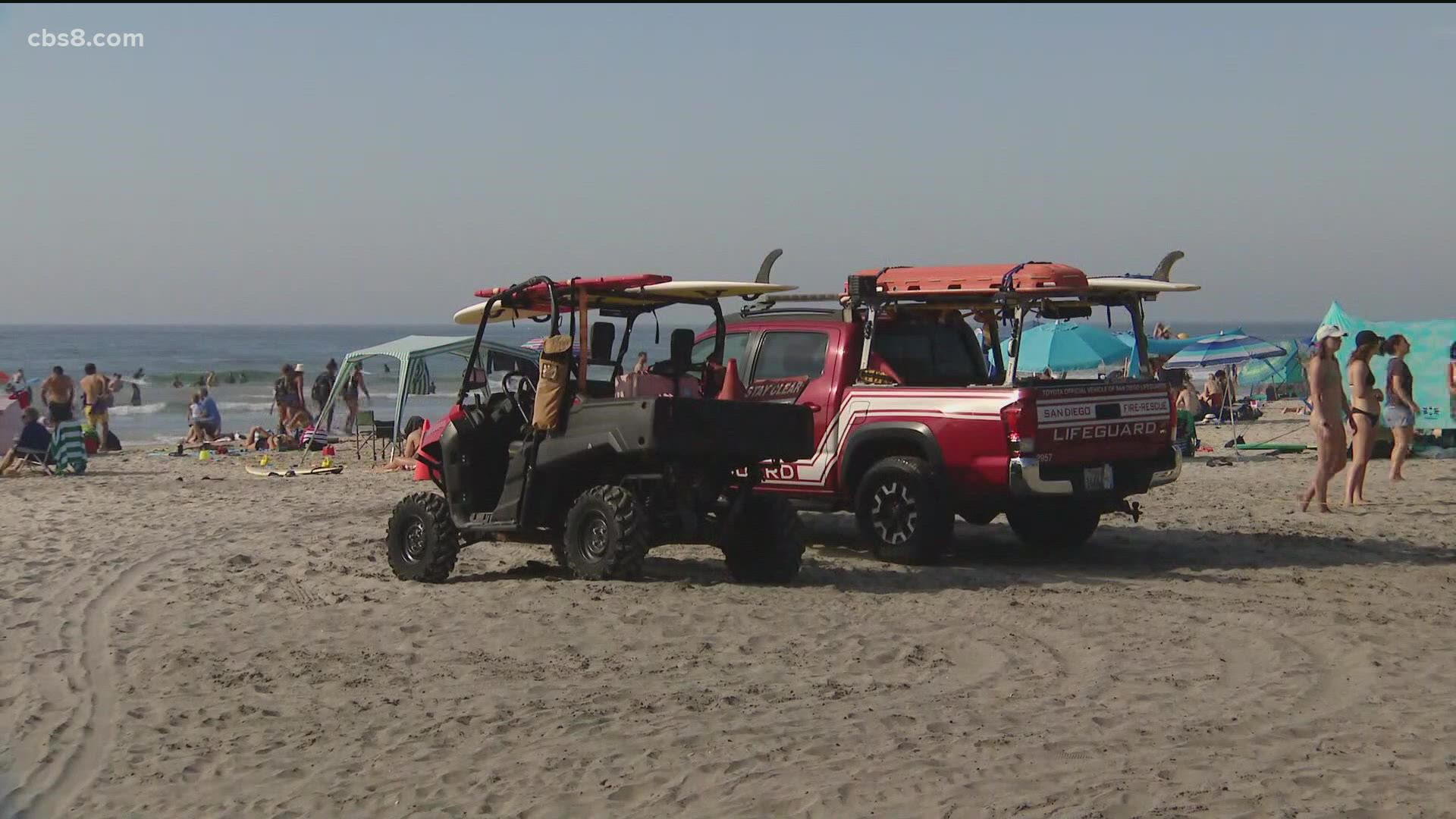SAN DIEGO — Spring break begins in many cities next week and on Thursday, San Diego leaders showed how they are preparing for the visitors.
Police officers and lifeguards gathered at the Lifeguards Headquarters to share important information for anyone who is planning to head to a body of water in San Diego in the coming days.
"Lifeguards and police officers patrolling the beaches and Mission Bay want everyone to have a safe and enjoyable experience," said Lifeguard Chief James Gartland. "Boaters and passengers should learn safety regulations before operating a vessel and be aware of individuals illegally renting vessels."
The San Diego Fire Department lifeguards patrol more than 40 miles of beaches keeping an average of 17 million visitors safe each year. On top of that they perform an estimated 7,000 rescues each year.
In addition to rescues in and on top of the water, lifeguards also manage cliff, scuba and swift water rescues. They also enforce boating safety regulations and respond to emergencies involving seafaring vessels and other watercraft.
The department employs a full-time beach team whose members jobs are to patrol the sand and boardwalks as well as Mission Bay.
In an effort to avoid tragic accidents, San Diego lifeguards ask anyone coming to the beaches and coastal areas to consider the following safety guidelines:
- Learn to swim
- Swim near a lifeguard
- Never swim alone
- Supervise children closely, even when lifeguards are present
- Don't rely on flotation devices, such as rafts or inner-tubes. Even US Coast Guard approved life jackets are not a substitute for swimming ability
- If caught in a rip current, swim sideways until free, don't swim against the current's pull
- Do not swim while under the influence of illicit drugs, medications that may cause impairment or alcohol
- Protect your head, neck and spine -- don't dive into unfamiliar waters -- feet first, first time
- If you are in trouble, call or wave for help
- Follow regulations and lifeguard directions
- Swim parallel to shore if you wish to swim long distances
- Scuba dive only if trained and certified -- and within the limits of your experience and training
- Report hazardous conditions to lifeguards or other beach management personnel
- Stay clear of coastal bluffs, they can collapse and cause injury
- Never turn your back to the ocean -- you may be swept off coastal bluffs or tide pool areas by waves that can come without warning
WATCH RELATED: Lifeguards hold boating safety demonstration ahead of Spring break (March 2021)

